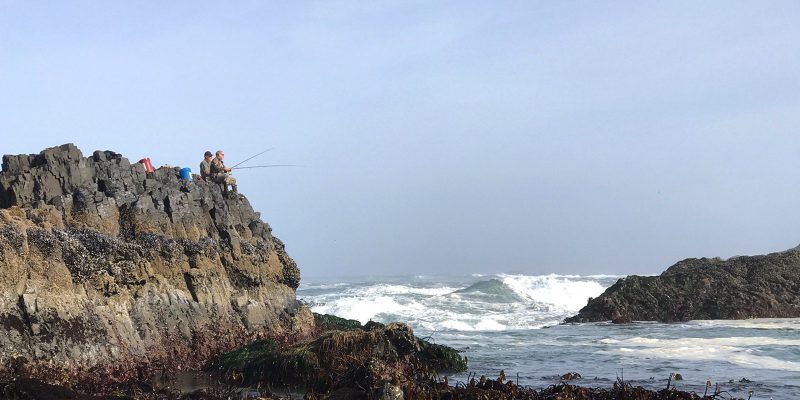I believe some of the most important questions we could ever ask are: Why do you want to live? How do you want to spend the time you have left? What makes your heart sing? What brings you the greatest joy and meaning in your life?
I was very fortunate early in my career to intern and work with Dr. Carl Simonton and the Simonton Cancer Center. Dr. Simonton was a true pioneer in developing a more psychological approach to cancer care, and this was based on an important observation he made about his patients.
Medical care essentially is based on a medical diagnosis. Once physicians know your diagnosis, they know what to do to treat you. However, what Dr. Simonton observed is that patients with the same diagnosis, getting the same treatment, in fact, can have very different outcomes. Those who had a stronger “will to live” were doing better and living longer than patients who showed a greater apathy, depression, and attitude of giving up. Thus, he developed and taught a program, where he encouraged patients and their families to find their own unique song to sing and to be more of who they really are, and that took them in the direction of their greatest joy.
This culminated in my position as Director of Psychological Services for a physician management group of cancer centers, where I developed, taught, and researched a wellness-based program for cancer patients and their families, with a decided emphasis on the will to live. I found that people really responded well to the adage, “When you’re busy doing something you like to do that you tend to forget your aches and pains.”
But no matter how much common sense and research I gave them about how a strong “will to live” could affect their health, they thought taking time for themselves to do what gave then the greatest enthusiasm for life was too selfish. Their moral, social, and cultural conditioning had taught them that everyone and everything else should come first. I found that there’s a strong tendency for people to believe that doing for others is much more appropriate than creating a balance between taking care of themselves (that’s the selfish part) and taking care of others. It was more appropriate to work than to play and have fun.
Eventually, I convinced them that they needed to take time to seriously consider their interests, needs, and values – and reprioritize their lives. Together we discovered that in the end what we all wanted most in our lives was peace of mind. When we thought about how to achieve this, we discovered that we did so when we were doing what we loved most. And this would also be instrumental in our relationships with others. We realized we were nicer to live with and work with when we took time for ourselves. This was not selfish! It was good sense and another way to improve our health.
I also knew that not only were our thoughts and feelings an energy that impacted our bodies, but that this thought-energy was being broadcast out into the universe. It is actually a resonant energy with the core of the universe, which quantum physics has discovered is one of harmony, order, compassion, joy, truth, and love.
I have so many stories I could share with you about the practical benefits of reprioritizing your life and doing more of what brings joy. One that stands out for me while working with Dr. Simonton is when a Harvard-educated attorney, who was now diagnosed with terminal cancer, decided to leave his legal practice to become a caddie on the professional golf tour. This was his dream. It took great courage, but we were convinced this was what saved his life.
Another story is when a woman diagnosed with advanced breast cancer attended my wellness classes along with her husband. He was an accountant, and it was Easter and the height of the tax season. They had eight children and they never seemed to be able to all be together as a family anymore. This became their priority and they dropped everything to go away, and all be together for the holiday. I’m certain this was part of her recovery.
I’ll share one last personal story. I’ve had food sensitivities to wheat and dairy for about twenty years. Two years ago, my wife and I went out to dinner to celebrate our wedding anniversary and were accidentally served pasta that was not wheat-free. Normally, as a result, I would have a severe reaction by the next day (and up to four days). However, we were shocked when I had no symptoms at all! I decided to meditate for an explanation and was told that the amount of joy I received from building driftwood birdhouses (a hobby I began a year before) overrode my food sensitivities.
When I was spending so much time building the birdhouses, I often thought that I really should be consulting, writing, or teaching about mind-body-spirit medicine. I should be helping people. My great lesson in this was to discover, like I’m advising you, I needed a much better balance in my life between work and having fun.
What keeps you from having more fun?
What brings you great joy? I recommend you take your time right now and think about this. Then see yourself immersed in whatever this is. Feel how good it feels. Let this be your gift to yourself (and others) this holiday season. See it and feel it daily like advent leading up to Christmas. This, of course, will also be a gift to the world – a vibration of harmony with the core truth of the universe.
Nobody else knows your reason for being, but you do. And your bliss guides you to it. When you follow your bliss, when you follow your path to joy, your conversation becomes of joy, your feelings are of joy. You’re right on the path of that which you intended when you came into this physical body.
Every experience every day presents the opportunity for you. Your job is to look for things that are a vibrational match to joy. Let your dominant intent be joyful, to feel good, be playful, have fun, laugh often. Not only will you create a joyous journey for yourself and others, but everything you have ever dreamed of will flow effortlessly into your experience.
Joy to the world!



